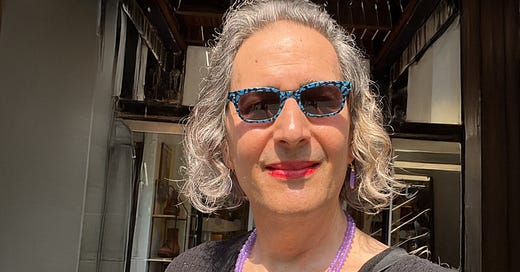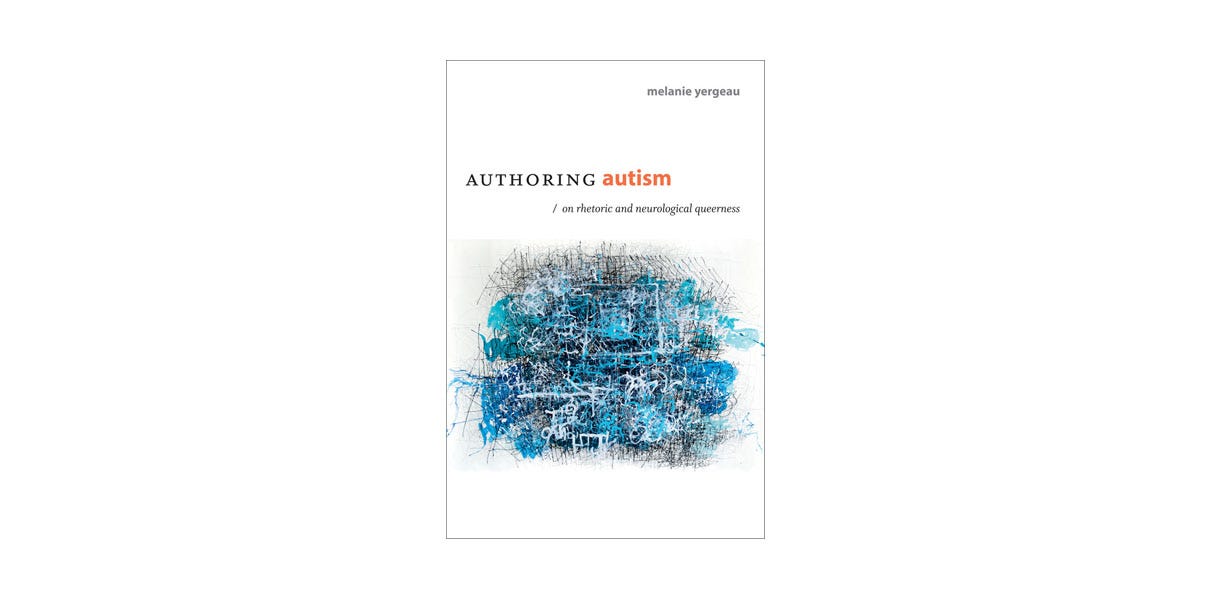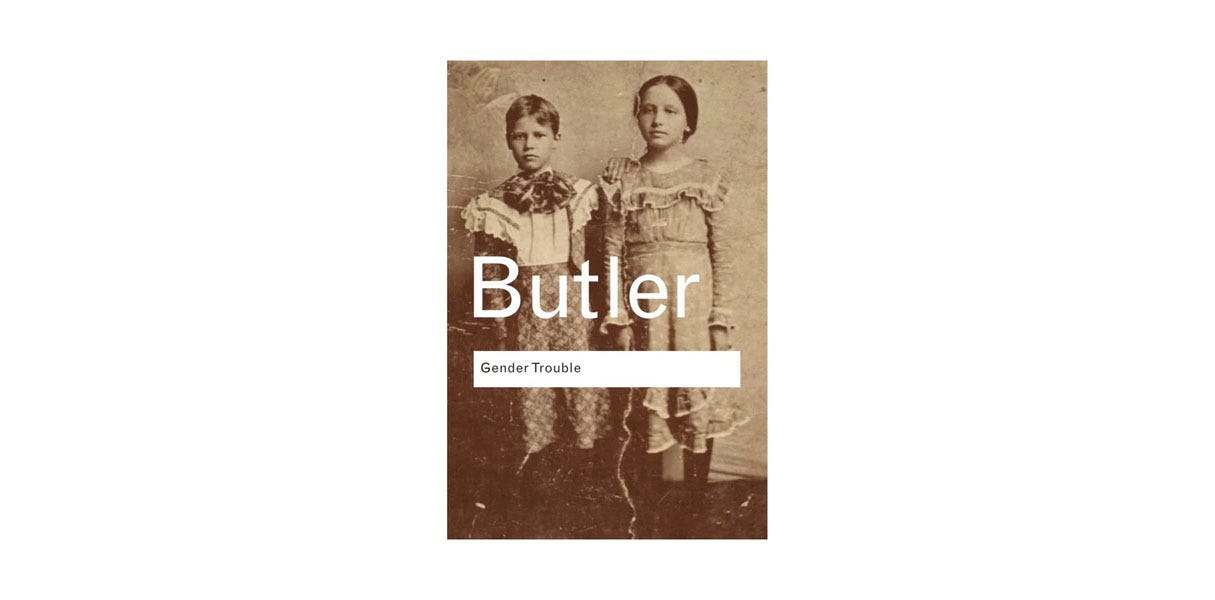I met Dani at Run Dem Crew, such is the way of things. The power of Run Dem bringing eclectic diverse thinkers together is never more true - she was the only person wearing five-toe shoes when we met. Her fiercely genuine personality shines through in everything she does. I've always appreciated their openness about being autistic, which adds depth to Dani’s honest advocacy for change and her commitment to supporting others. Our thoughtful conversations continue to be a highlight of our friendship and this Q&A is a testament to that.
How would you describe yourself, and what drives you?
I am Autistic, queer, and transgender. Being Autistic has given me a powerful sense of justice, as well as a brain which sees systems (and sees almost everything, including society, as a system) in a way which allows me to see flaws others have missed and to intuit what the system should look like to work better in some specific way. I am driven by a desire to undo some of the significant damage that mainstream psychology and psychiatry have done by perpetuating false myths about human behaviour and human powers of observation which do great harm to all of the marginalised communities I am proud to consider myself part of (sadly often for the benefit of privileged communities which I am also part of, but not proudly so).
What pivotal moments have shaped your journey so far?
My experiences as a graduate student and postdoc/research faculty which spanned Caltech, MIT, and Stanford University gave me great confidence in the power and rarity of my systems thinking skills. Each of the shifts in my identity has been profound in its own way. Discovering I was Autistic gave me a much better sense of understanding both how and why I was so different from others. In particular clarity as to why my systems skills were as incomprehensible to many of the people I worked with as those people were to me. I also learned the wonderful maxim that “Autism explains everything and excuses nothing.” Something that apologists for certain outspoken Autistic billionaires would do well to take to heart. Finally, the ability to fully embrace the female identity which I have known to be who I am since I was a child has been tremendously liberating. I am still at the beginning of that journey but already the change has been profound and more far-reaching than I had imagined was possible.
What is your relationship with Rosie Lee, Unorthodox Blend, and/or Mark & Russell?
I have known Mark for well over a decade, initially through his connection with Run Dem Crew; then later as a friend.
What has come out of any relationship and collaborations?
I think in addition to just the untold value of being a good friend, I feel that Mark and I have really interesting and far-reaching conversations in which we learn from each other. There is no price one can put on that.
What does being unorthodox mean to you in your work?
Honestly, I don’t think I am capable of being orthodox. Everything about me and my career has been about my doing things my way, often in the face of stiff resistance. This can make me a tremendous asset or a terrible nightmare.
What beliefs have guided you through tough decisions?
I think one of the strengths that Autistic people in general can bring to tough decisions is that we tend to get a lot less emotionally involved in the success of our own ideas when we are in a room with people we respect. Sadly I think a lot of neurotypical people see as weakness this great Autistic ability to want the best idea to win, even when it isn’t one’s own. Entering a decision process ready to both push one’s own idea and to jettison it when someone else has a better idea actually makes us stronger, not weaker.
What challenge in your field of work is often overlooked?
I think that most people are really confused about what the terms ‘expert’ and ‘expertise’ mean. For example, when you look at the world of Autism there are a bunch of well-known academics and popular authors who have claimed the space of ‘expert in Autism’ but aren’t actually Autistic. I’m currently writing academic philosophy as a form of reparative therapy (my first paper, co-authored with a tenured professor of philosophy is due out later this year). We are trying to build the Theory arguments to establish the principle that the only expertise about Autistic people necessarily resides within the Autistic community, by which we mean only people who are Autistic. Not parents and caregivers. We argue that virtually all of the published research about autism is simply wrong. Right down to the definition of what Autism is.
How do you balance creativity with structure / order with chaos?
I think the only way to do this is by building enough flexibility into your structures that chaos strengthens them rather than destroying them. The biggest shortcoming in most people’s systems thinking is that they just don’t have the ability to think on a broader scope than what is right in front of them, and so they unintentionally make systems brittle through overly-local decision-making.
What cultural shifts are you noticing in your field of work?
It’s been really encouraging to see more and more openly neurodivergent people working in research about us; and filling the roles of experts. I think I can already see the cracks in the old-school systems I am trying to tear down, and my job is more to widen those cracks to the point of collapse than to introduce initial doubt. It’s particularly encouraging to see a shift away from the old psychiatric labels for Neurodivergence (Autism, ADHD, dyslexia, etc.) and seeing a shift towards looking at each person as an individual and asking smart questions about what support they need and what uncommon but valuable ways they might be able to contribute. I also think there’s a growing awareness that the concept of ‘normal’ is false and dangerous and primarily serves to preserve the power of the old industrial revolution thinking that is currently hobbling our societies in many ways, not to mention perpetuates old power structures in our societies.
If you could master any skill instantly, what would it be?
The skill of persuasion.
What’s one experience everyone should have at least once?
I don’t think we are anywhere near a way to do this, but based on the experiences I have been going through recently, I think it would make a tremendous difference if everyone had the experience of fully experiencing what it is like to be at least a couple of other genders. There’s just so much misunderstanding, mythology, and gaslighting that comes out of the complete incomprehension most people have of any gender but their own.
What has inspired you lately?
Sorry to say the first two of these are hard reads, but well worth the effort to engage with. Also sorry that I’m not so good at short overviews!
First off, the book ‘Authoring Autism’ by Melanie Yergeau (although they now go by M. Remi Yergeau and I think prefer Remi) is honest, brutal, insightful, and funny. An incredibly hard mix to pull off. They have just one of the most beautiful minds I have ever encountered. My co-author and I both fell totally in love with their mind while working on our paper.
Next up is Judith Butler’s ‘Gender Trouble.’ I’m sure many of you have heard, and struggled to understand the phrase “Trans women are women.” As someone who could be identified as a trans woman, but chooses not to identify that way because I have so many disagreements with how trans activism has shaped the understanding people have when they hear the term, I think it is essential to bring some nuance to this conversation. What Butler’s astonishing book does is lay out a description of where one needs to be positioned within Theory space for that statement to be clearly and unequivocally true. And I think this is an important point that has gotten completely lost in the noise. Because there are other points in theory space, and points out in the world, from which this isn’t really a statement that sits well with a lot of people. And shouting angrily that it is always unequivocally true just isn’t how I, as an intellectual, choose to engage in discourse. So read Butler’s book, but be forewarned that they are almost certainly smarter than you are. They are smarter than me, and a whole bunch of people who I think of as way more brilliant than I am have told me that they are sure Butler is smarter than them. So don’t be discouraged. Stick with it. It’s a classic. The thing that Butler lays out, which makes this book so inspiring to someone like me, is the idea that the very concept of ‘woman’ is in fact a social construct, and that all women spend a great amount of their time performing the role of ‘woman’ rather than behaving purely in a way which is natural and innate to their biology.
Finally, something much more accessible. I was recently introduced to the music of Girli (@girlimusic on Instagram; and of course she’s on Spotify). She is a queer pop artist and I have just fallen in love with her music. A lot of her songs capture a great deal of the emotional journey, and confusion, which is my life these days. When I want to feel strong and powerful and out in the world as a queer women you’ll probably find me dressed up in a skirt or dress, wearing sexy boots and a pink beret (and, of course, red lipstick!) and dancing my way through the streets of East London with Girli in my ears.
What advice would you give to young people starting out in their career?
As quickly as possible (honestly, ideally while you are still in school) figure out what you love doing; what you are really great at doing; and where those two lists overlap. Then look for work that will let you work as much as possible in that sweet spot. And remember, there is a very good change that the job which will define your career might not yet exist!
How can people connect with you, get involved or take part in any of the projects you’ve highlighted above?
I’m on Instagram (as @rundembear, and also on @zenmasterbear although the first one is way more active). I also sometimes post on LinkedIn. I also have a personal website which I promise will see some new activity later this year, that’s
Finally, I have what is essentially a mini-foundation which is both the legacy project of my wife Suzanne (who died in 2023); and will hopefully become the platform for my Neurodivergence activism at some point in the future. That’s called Heading for Change and can be found here
https://www.headingforchange.org/
Bonus Question
What question would you like us to ask the next person?
Can you think of a single example of technology in the form of Apps which is widely-used and actually a joy to use? One of my fantasy projects it to write a book called ‘Why All Tech Sucks’ and I’m always interested to see if someone has a counter-example. Note, being useful, even essential, is not the same as being a joy to use.
Instagram: @rundembear @zenmasterbear
LinkedIn: https://www.linkedin.com/in/danimaskit/
Other links:
https://www.headingforchange.org/
Website: https://zenmasterbear.net/
Emial bear@headingforchange.org






